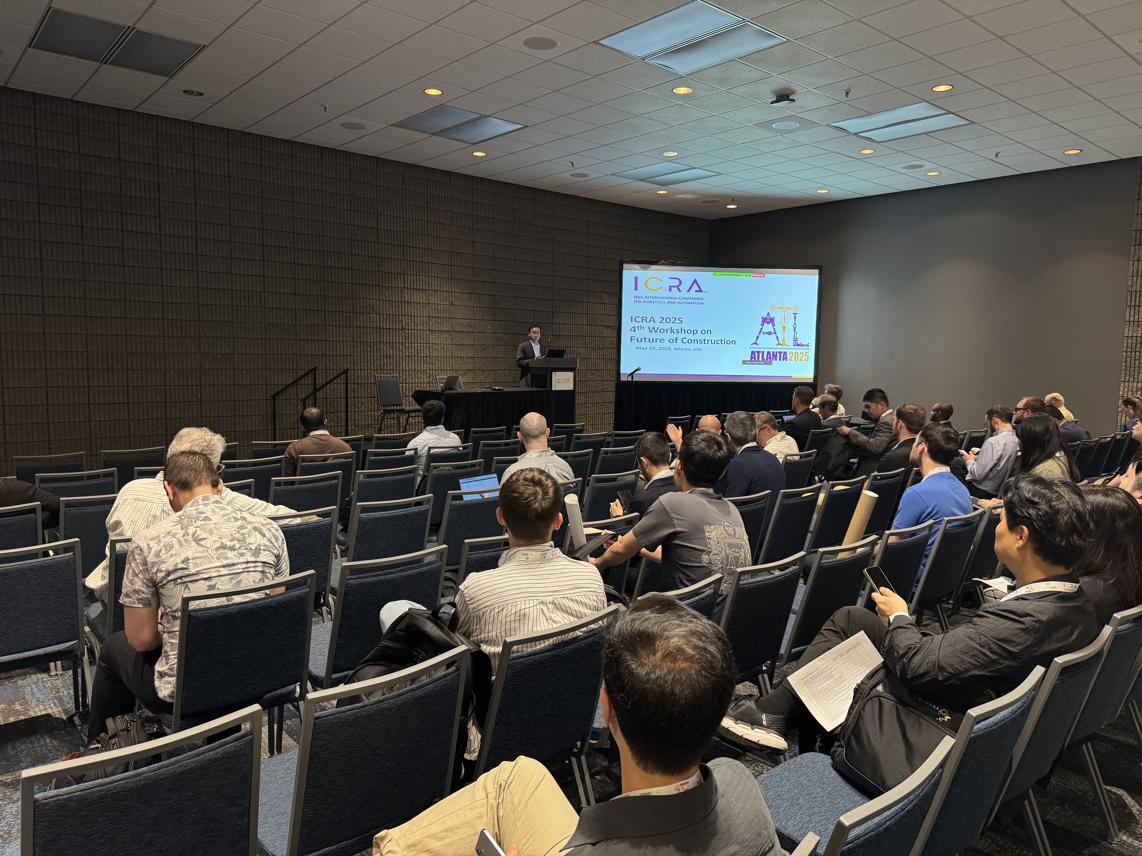
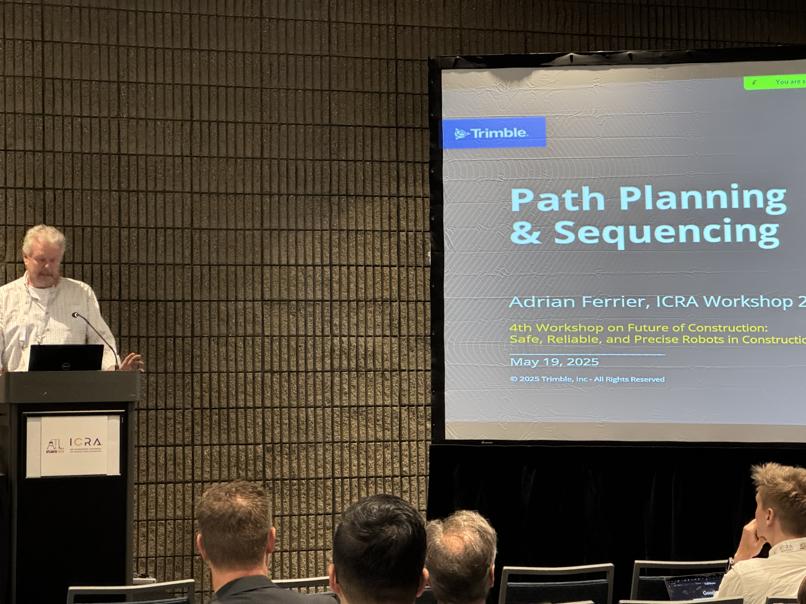
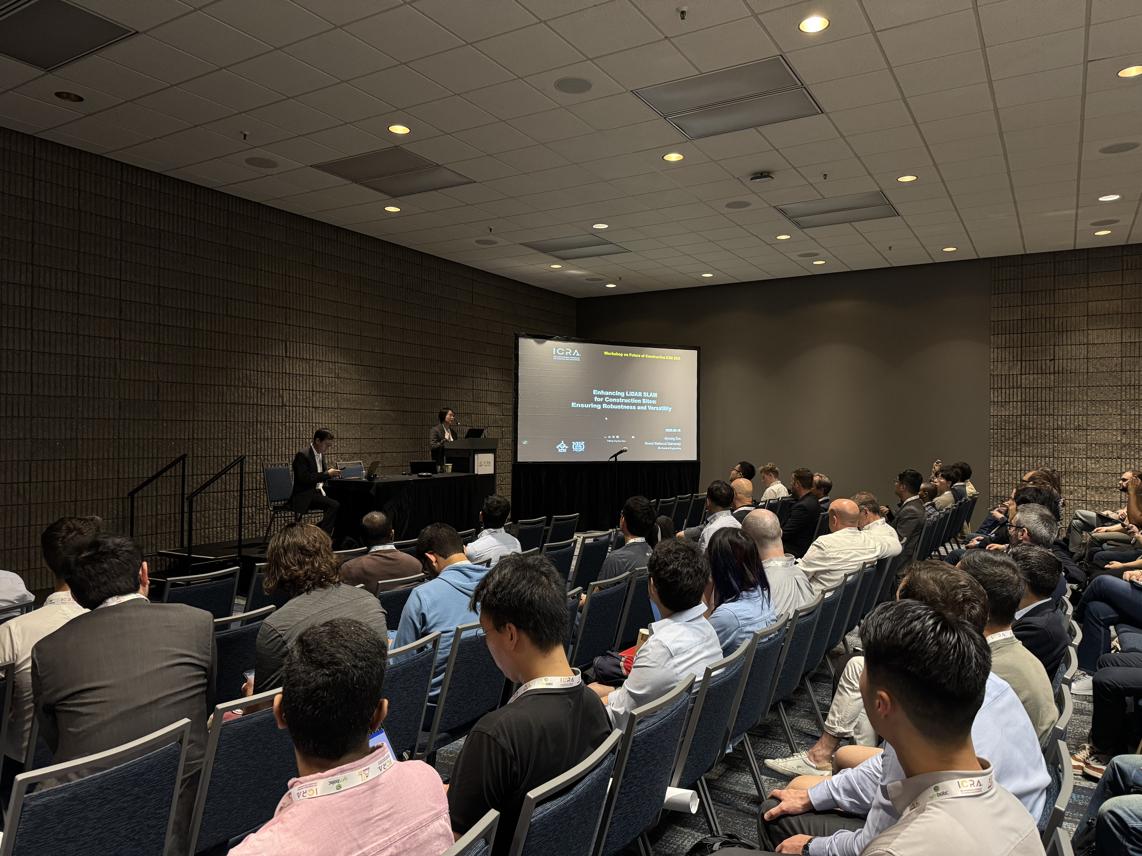
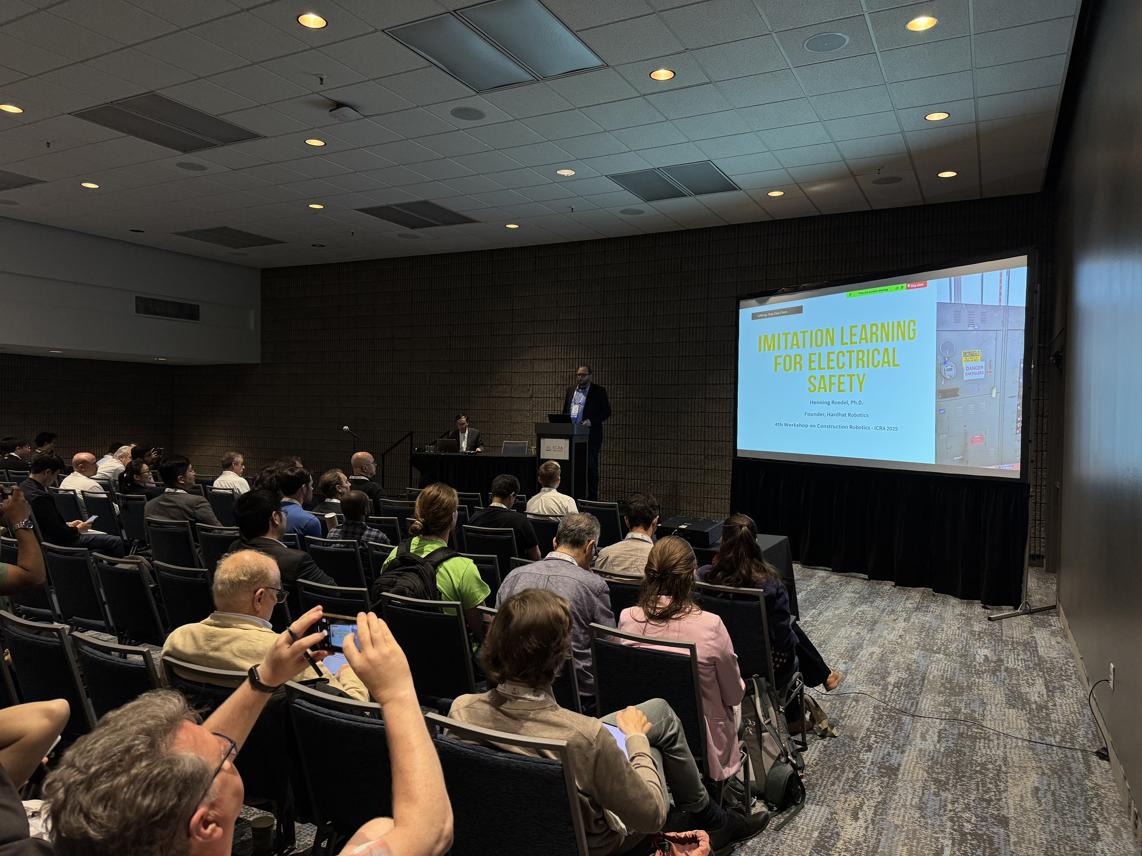
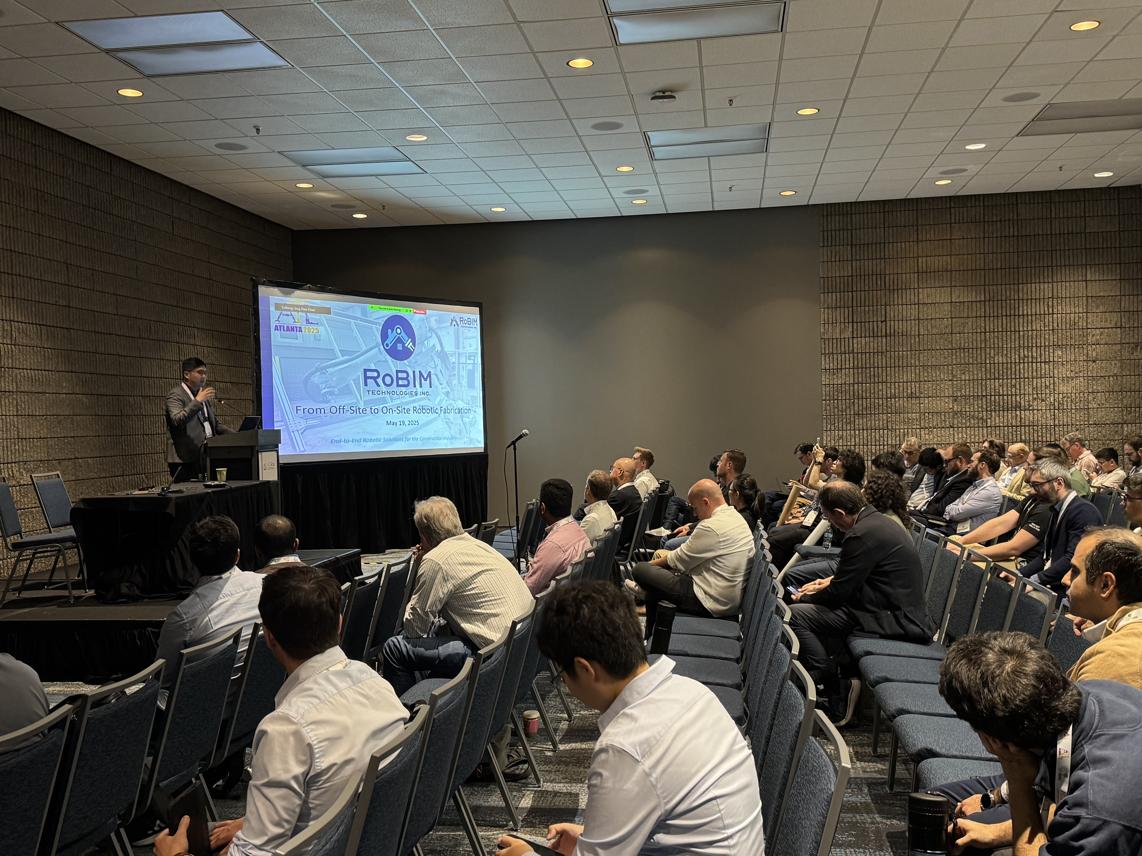
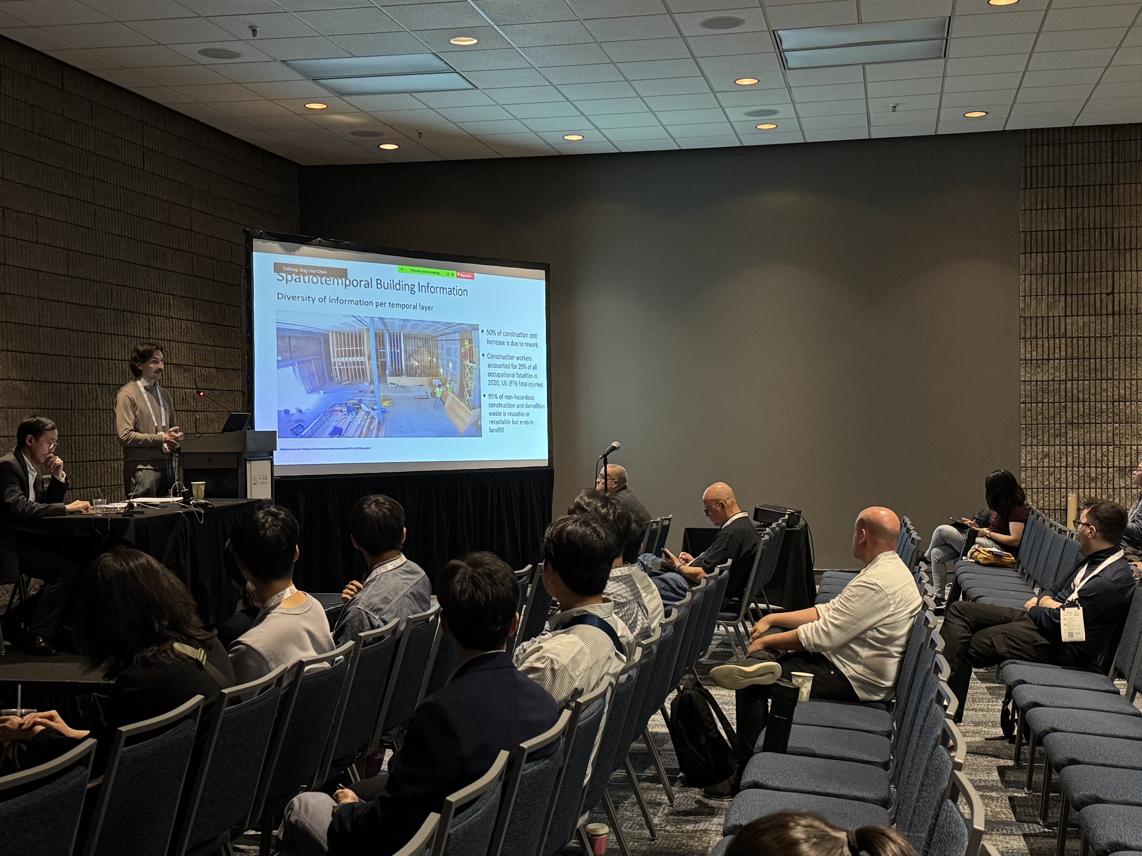
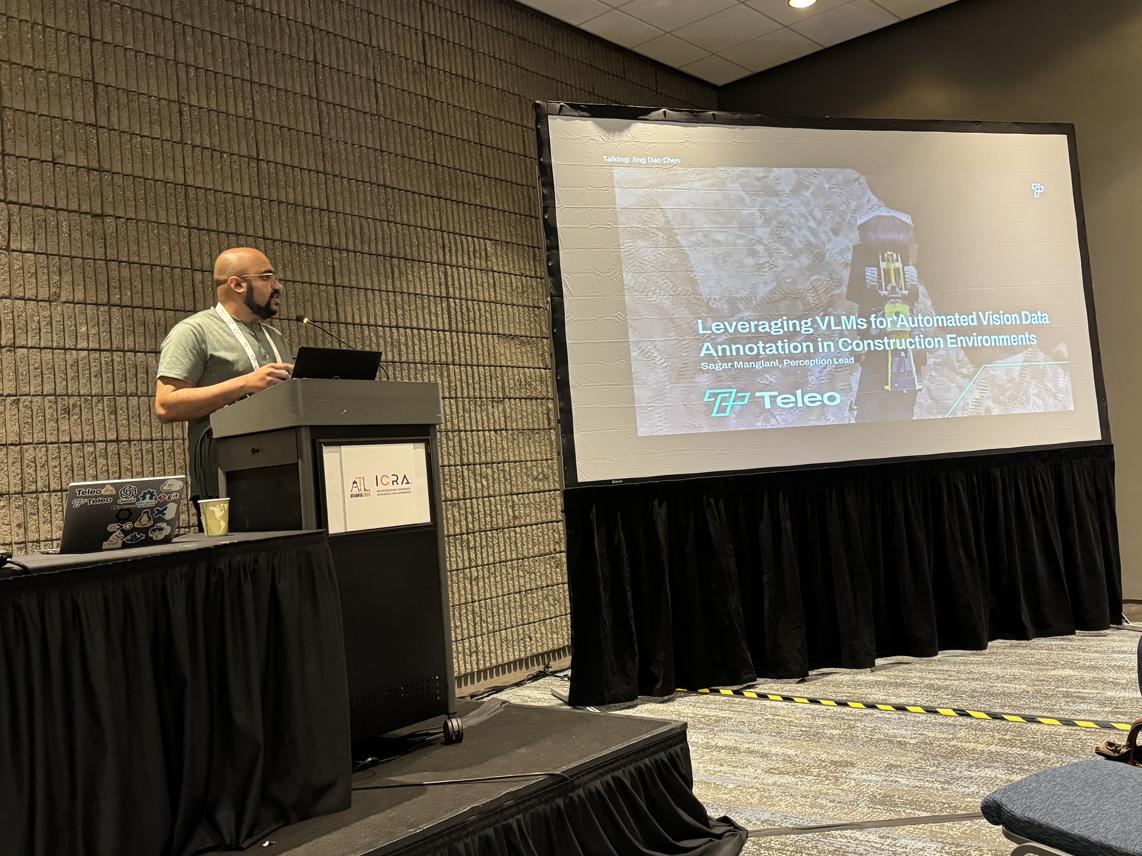
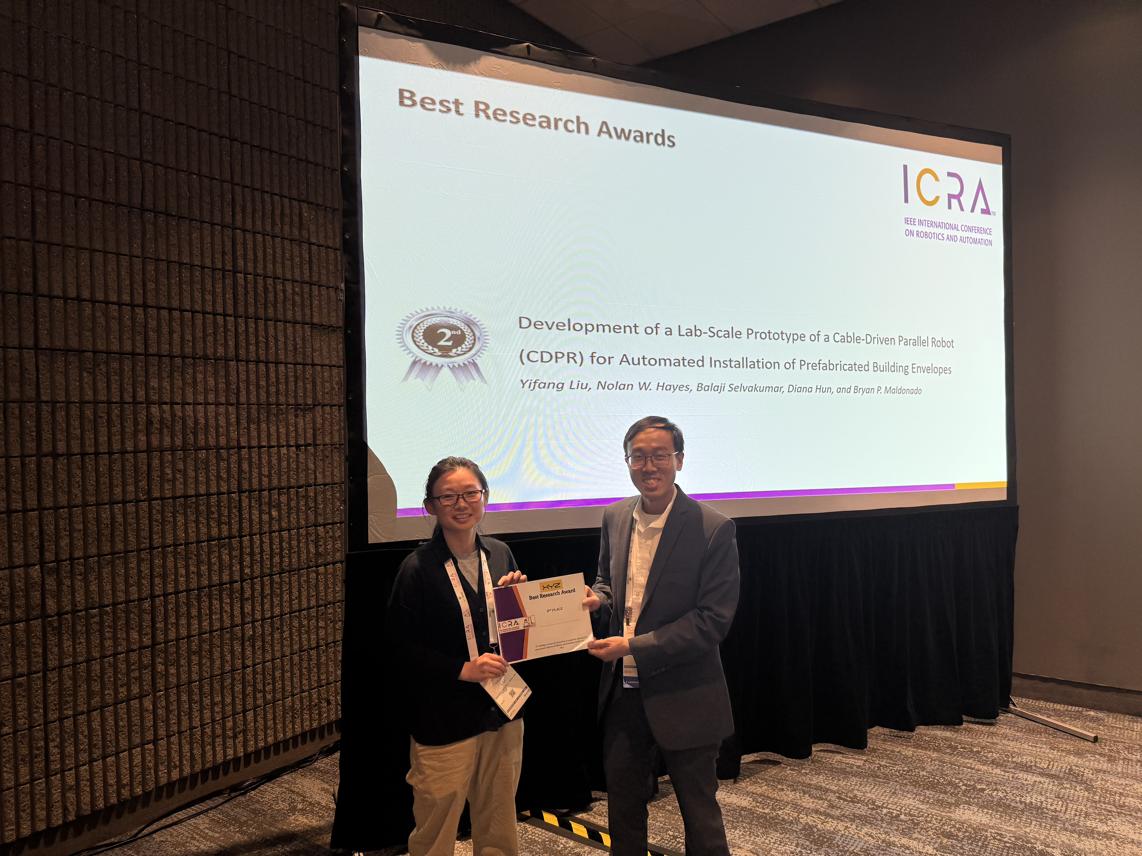
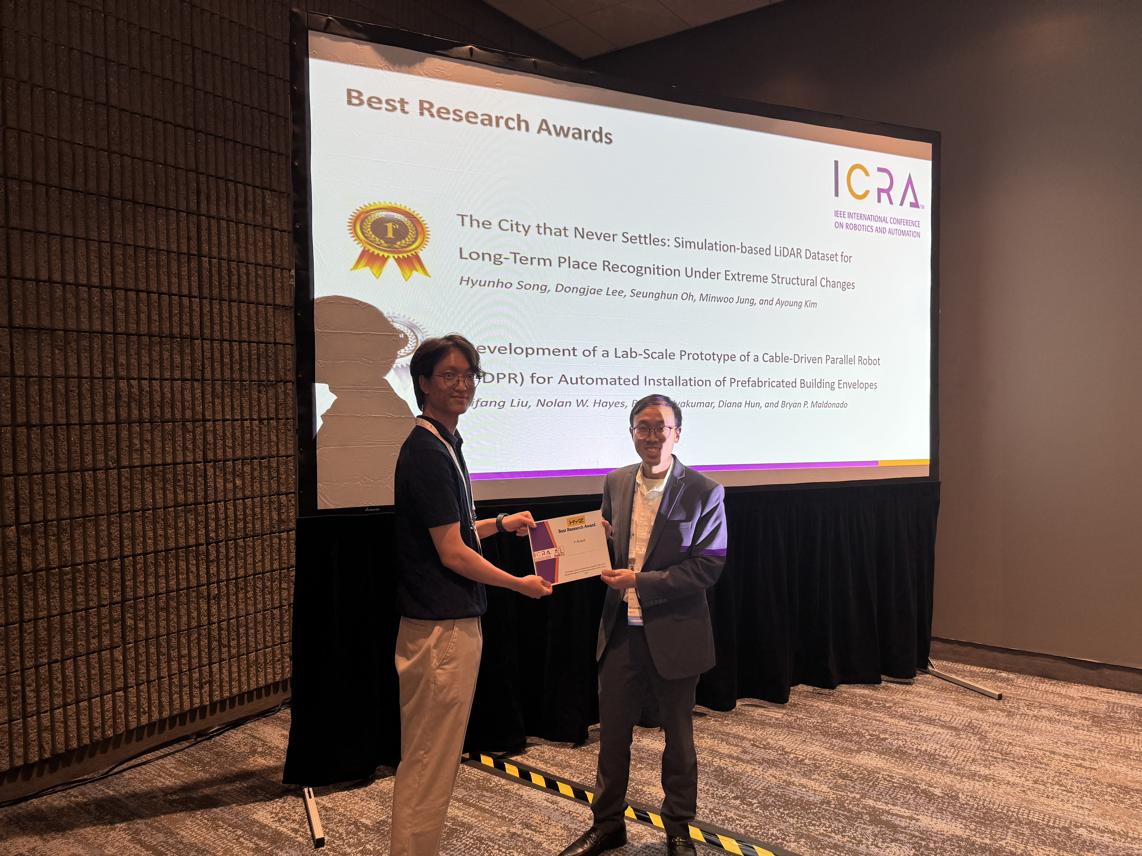
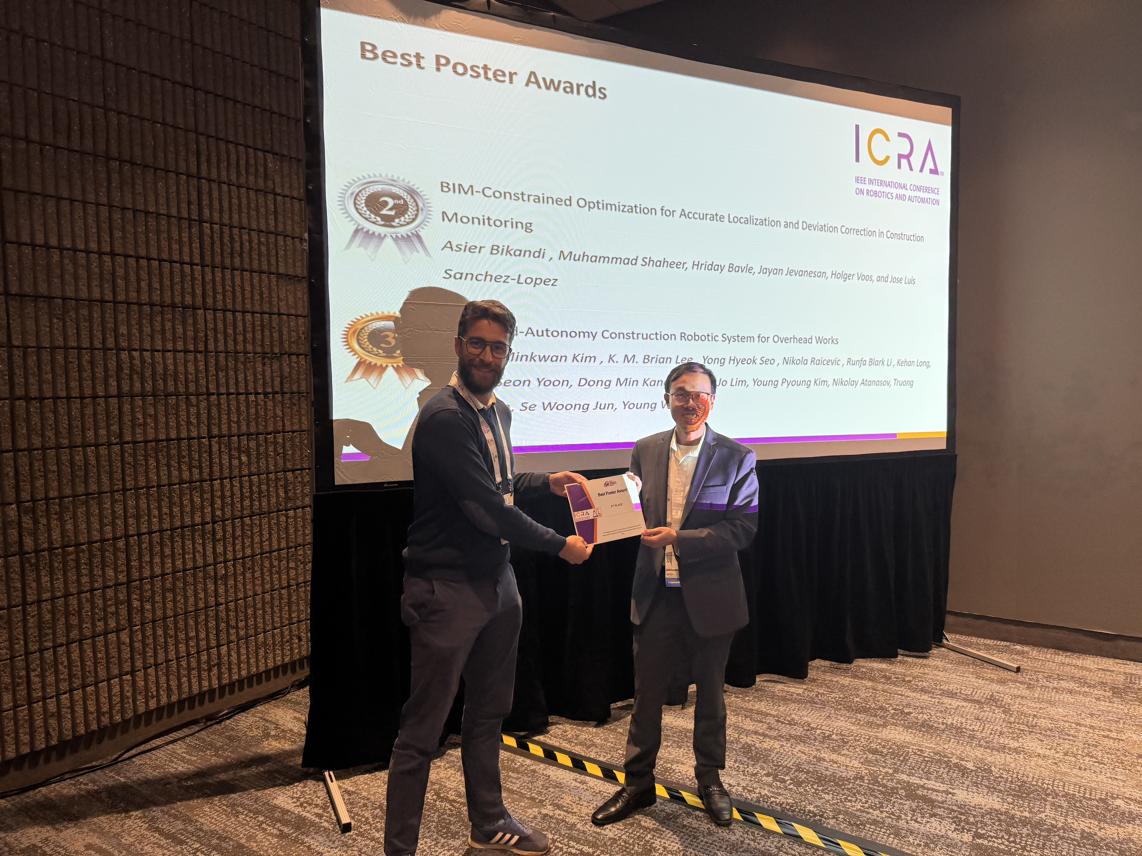
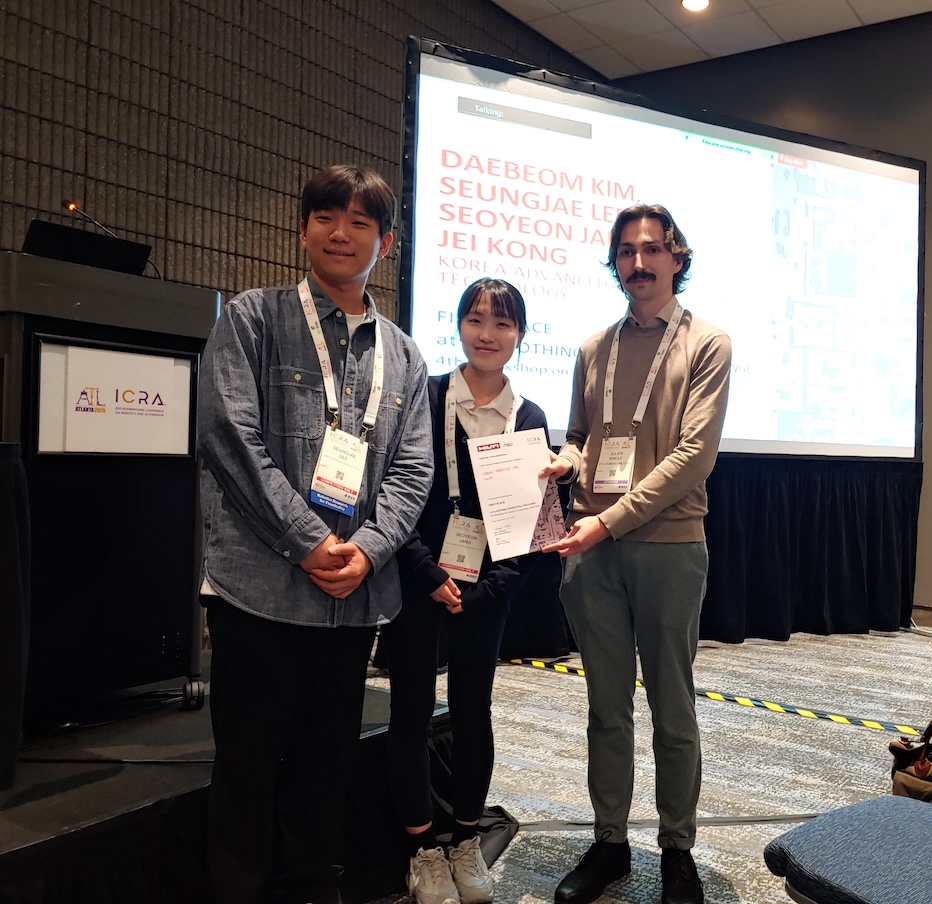
The $10 trillion global construction industry has traditionally been a labor-intensive industry, yet it stands to benefit from autonomous robots that promise to deliver construction work that is more accurate and efficient compared to manual or conventional methods. However, the integration of automation and robotic technology into the construction workplace is faced with significant barriers including high cost of entry, safety concerns, inadequate training and knowledge about robotics, and poor performance of robots in dynamic, cluttered and unpredictable environments such as construction sites.
To tackle these challenging issues, this workshop aims to facilitate discussion on technology that will enable advanced robotics for future construction workplaces with an emphasis on robust perception and navigation methods, learning-based task and motion planning, and safety-focused robot-worker interactions. In line with the ICRA's theme, this workshop will provide a venue for academics and industry practitioners to create a vision for robotics in construction work and ensure equitable participation in planning for the future of construction workplaces. The full-day workshop will feature presentations by distinguished speakers from both industry and academia as well as interactive activities in the form of a SLAM challenge, poster sessions, debate, and panel discussions
This workshop will solicit contributions in two tracks: (i) the Paper Track and (ii) the Poster-only Track.
Paper Track: This track consists of contributed papers that constitute novel, original research in construction robotics or closely related fields. Contributed papers cannot take the form of an existing paper that is published or under review. Contributed papers should be in the form of extended abstracts (about 3-4 pages in ICRA paper format, including references). Authors are encouraged to also submit an optional 2-3 minute video presentation of their paper if their work involves visualization, robot operation etc. The accepted contributed papers will be made publicly available on the workshop website. Authors of selected papers will be invited to extend their work into a journal paper for an upcoming Special Collection at the Journal for Computing in Civil Engineering.
Poster-only Track: This track consists of posters that can be either based on a prior publication or novel work. Authors with an original paper may submit it to both tracks (paper and poster). Accepted posters will be presented during the poster session on the day of the workshop in the hallway outside the conference room. Authors are expected to print out and bring their own posters to the workshop, though poster boards will be provided. Poster boards are 4'x 4'. There is no specific template for the posters. You should choose the format that best represents your research work.
Submissions can be made through this Google Form, where the paper or poster can be uploaded in PDF format. Deadlines given below are in Anywhere on Earth Time. Questions regarding the paper submission should be directed to chenjingdao@cse.msstate.edu.
Camera-ready paper submissions can be made through this Google Form.
If you require an early decision notification due to having to apply for a visa, please contact chenjingdao@cse.msstate.edu
The topics of interest include, but are not limited to, the following:
Submitted papers (Paper Track only) will be considered for the best research awards based on technical merit, originality, and potential impact on the field. In addition, submitted posters (Poster Track only) will be considered for Best Poster Awards, and in-person judging will take place on the day of the workshop.
This workshop will involve a Simultaneous Localization and Mapping (SLAM) competition organized by Hilti. The challenge website may be accessed here.
Links to previous iterations of this workshop at past conferences: